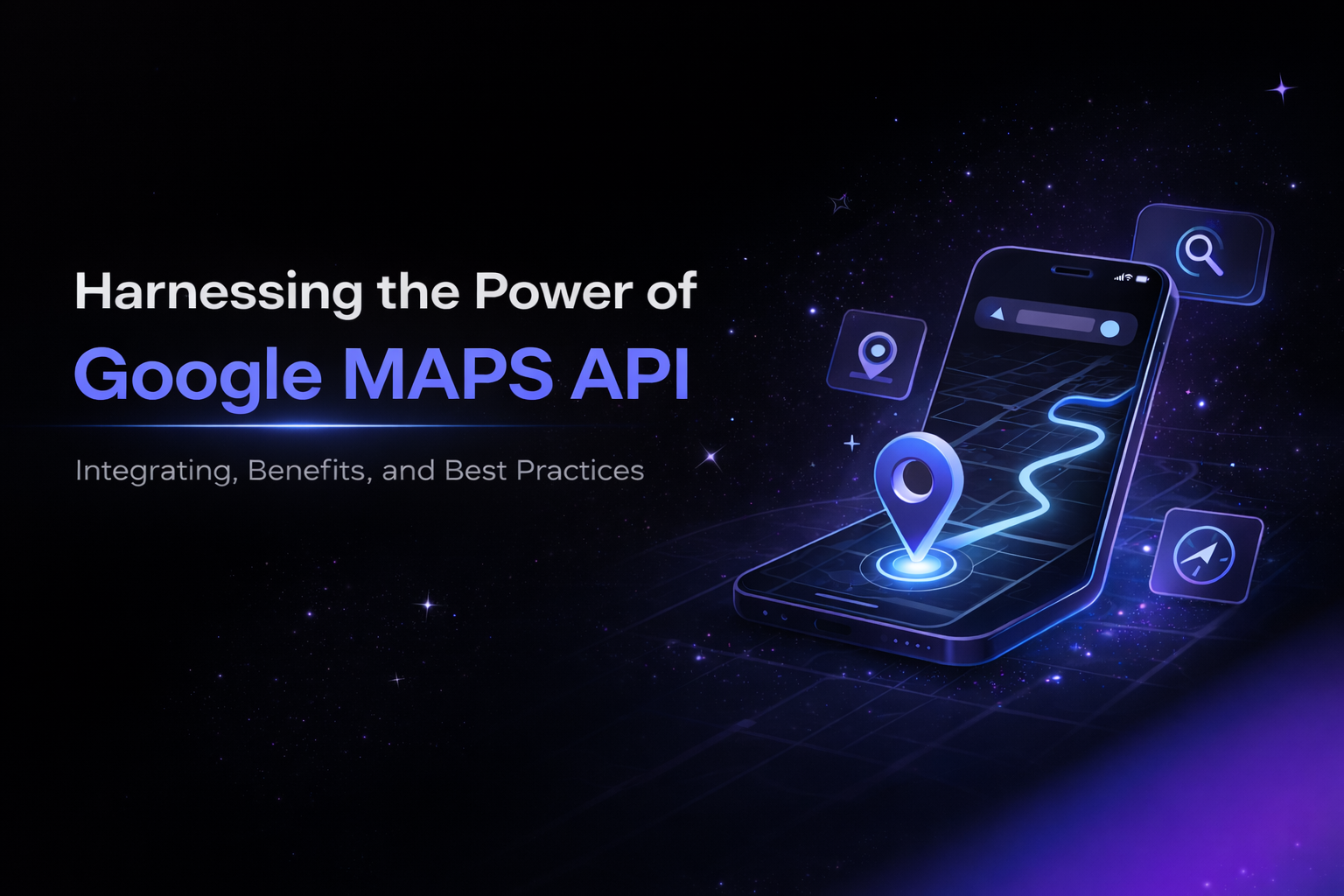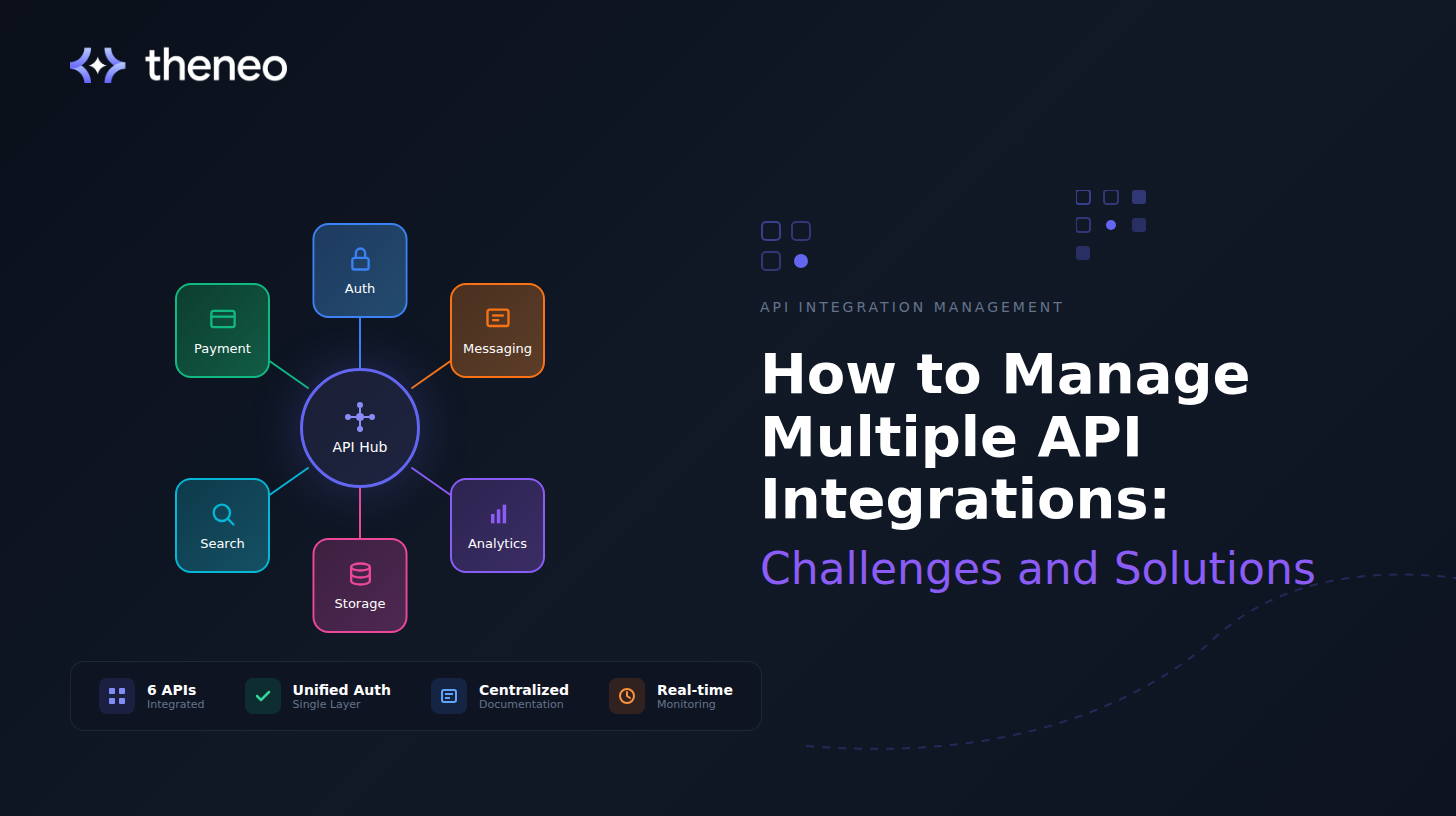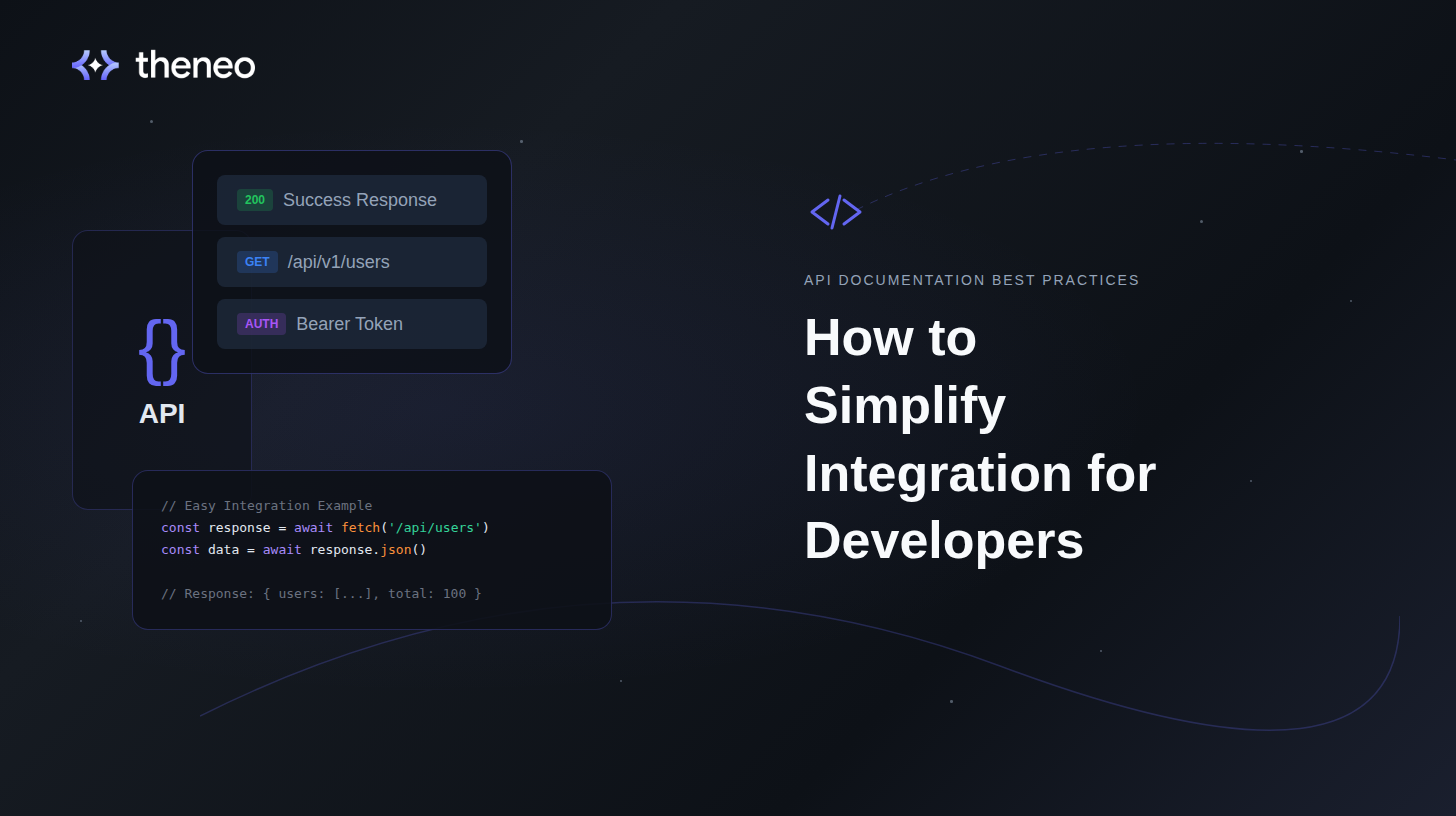Bridging the Gap between API Development and API Management,
Discover how to effectively bridge the gap between API development and API management with our comprehensive article.

In today's digital landscape, Application Programming Interfaces (APIs) play a crucial role in enabling efficient communication and data exchange between different software applications. API development involves creating these interfaces, while API management focuses on the efficient governance and control of these interfaces. However, there is often a disconnect between API development and management, which can hamper the overall effectiveness of both processes. In this article, we will delve into the basics of API development, the importance of API management, the challenges associated with the gap between the two, and strategies to bridge this gap.
Understanding the Basics of API Development
API development is the process of building and designing interfaces that allow different software applications to communicate and share data. It involves creating a set of rules, protocols, and tools that enable seamless integration between applications.
API development projects typically include defining the API specifications, designing the endpoint structure, and implementing the necessary functionality. This process requires a deep understanding of the underlying technologies, programming languages, and industry standards.
Thorough documentation plays a vital role in the success of API development efforts. It allows developers to easily understand and utilize the API, ensuring smooth integration and efficient data sharing.
Key Elements of API Development
When embarking on an API development project, there are several key elements to consider:
- API Specifications: Defining the specifications of the API is crucial. This includes determining the data formats, authentication methods, and error handling mechanisms.
- Endpoint Structure: Designing the endpoint structure involves deciding on the URLs and methods that will be used to access and manipulate data through the API.
- Functionality Implementation: Implementing the necessary functionality requires writing the code that will handle requests, process data, and provide responses.
Each of these elements requires careful consideration and planning to ensure the API meets the needs of the applications it will serve.
The Role of API in Modern Software
APIs are the backbone of modern software applications. They enable effective integration between different systems, allowing data to be shared and processed in real-time.
By leveraging APIs, organizations can create powerful software ecosystems. This allows them to leverage existing resources and services, ultimately increasing productivity and efficiency.
APIs also play a crucial role in enabling innovation and collaboration. Developers can build upon existing APIs to create new applications and services, fostering a vibrant and interconnected software community.
In addition to facilitating integration and innovation, APIs also enhance security. By providing controlled access to data and functionality, APIs enable organizations to enforce security measures and protect sensitive information.
In conclusion, API development is a complex and essential process in modern software development. It involves careful planning, implementation, and documentation to ensure seamless integration and efficient data sharing. APIs serve as the foundation for building powerful software ecosystems, enabling organizations to leverage existing resources and services, ultimately increasing productivity and efficiency.
The Importance of API Management
While API development focuses on creating interfaces for seamless communication, API management ensures the efficient governance and control of these interfaces. Effective API management is crucial for successful utilization and monetization of APIs. It ensures proper security, reliable performance, and smooth integration with external applications.
API management involves a comprehensive set of practices and tools that enable organizations to manage the entire lifecycle of their APIs. From design and development to deployment and monitoring, API management provides the necessary infrastructure and processes to ensure the success of APIs.
The Need for Effective API Management
As organizations increasingly rely on APIs to drive their digital strategies, the need for effective API management has grown exponentially. Without proper management, APIs can become vulnerable to security breaches, performance issues, and inadequate scalability.
Security is a critical aspect of API management. APIs often handle sensitive data and provide access to valuable resources. Effective API management solutions implement robust security measures, such as authentication, authorization, and encryption, to protect against unauthorized access and data breaches.
Performance is another key consideration in API management. APIs need to deliver fast response times and handle high volumes of requests without experiencing downtime or performance degradation. API management solutions include features like caching, load balancing, and rate limiting to optimize performance and ensure a smooth user experience.
Scalability is also a crucial factor in API management. As the demand for APIs grows, organizations need to ensure that their APIs can handle increased traffic and user load. API management solutions provide scalability features, such as horizontal scaling and auto-scaling, to accommodate growing demand and prevent service disruptions.
How API Management Contributes to Business Success
API management goes beyond technical aspects. It also plays a crucial role in business success. APIs allow organizations to expose their services to external developers, partners, and customers, enabling them to build innovative applications and create new revenue streams.
By providing well-documented APIs and developer portals, API management solutions make it easier for external developers to discover, understand, and integrate with an organization's services. This fosters collaboration and innovation, as developers can leverage existing APIs to build new applications and services.
Furthermore, API management solutions provide robust analytics and monitoring capabilities, allowing organizations to track and measure the performance and usage of their APIs. This data provides valuable insights into how APIs are being used, which features are popular, and how they contribute to business goals. With this information, organizations can make informed decisions about API enhancements, pricing strategies, and resource allocation.
In conclusion, API management is a critical component of successful API utilization and monetization. It ensures the security, performance, and scalability of APIs, while also enabling organizations to drive innovation, create new revenue streams, and make data-driven decisions. Effective API management is essential for organizations looking to leverage the power of APIs in today's digital landscape.
The Disconnect between API Development and Management
Despite the clear interdependence between API development and management, there often exists a disconnect between the two processes. This gap can lead to inefficiencies, suboptimal performance, and missed opportunities for organizations.
API development and management are two critical aspects of any organization's digital strategy. API development involves creating and implementing application programming interfaces (APIs) that allow different software systems to communicate and interact with each other. On the other hand, API management focuses on the governance, monitoring, and maintenance of these APIs throughout their lifecycle.
Common Challenges in Integrating API Development and Management
One of the challenges organizations face is the lack of communication and collaboration between development and management teams. Often, these teams operate in silos, with little interaction and understanding of each other's roles and responsibilities. This can result in the implementation of APIs that do not align with the organization's strategic goals or fail to meet the needs of external stakeholders.
Another challenge is the absence of standardized processes and tools for API development and management. Without clear guidelines and frameworks, organizations may struggle to establish consistent practices for designing, documenting, and versioning APIs. This lack of standardization can further exacerbate the gap between development and management, making it difficult to ensure seamless integration and efficient operation of APIs.
The Impact of the Gap on Business Performance
The disconnect between API development and management can have severe consequences on business performance. Inefficient communication can lead to duplication of work, delays in time-to-market, and increased development costs. For example, without proper coordination, development teams may unknowingly create APIs that already exist, resulting in redundant efforts and wasted resources.
Furthermore, the lack of alignment between API development and management can compromise the overall quality and reliability of APIs. Without proper monitoring and maintenance, APIs may experience performance issues, security vulnerabilities, or compatibility problems with other systems. These issues can directly impact customer satisfaction, as users rely on APIs to access services or integrate applications seamlessly.
Moreover, the disconnect between development and management can hinder innovation within an organization. When the two processes are not integrated, valuable insights and feedback from API users may not reach the development teams. This lack of feedback loop can limit the organization's ability to iterate and improve its APIs, potentially missing out on opportunities for innovation and competitive advantage.
In conclusion, bridging the gap between API development and management is crucial for organizations to maximize the value and impact of their APIs. By fostering collaboration, establishing standardized processes, and prioritizing effective communication, organizations can ensure that their APIs align with strategic goals, deliver optimal performance, and drive innovation.
Strategies for Bridging the Gap
Addressing the gap between API development and management requires proactive strategies and best practices. By fostering collaboration, implementing standardized processes, and leveraging appropriate tools, organizations can bridge the gap and ensure seamless integration.
Best Practices for Aligning API Development and Management
Organizations should establish clear lines of communication and collaboration between API development and management teams. Regular meetings and cross-functional workshops can help align priorities, share knowledge, and jointly define API specifications. Additionally, involving management teams in the early stages of API development enables strategic planning and ensures adherence to business objectives.
Leveraging Tools for Improved API Integration
The adoption of API management platforms can significantly enhance integration between development and management teams. These platforms offer functionalities such as centralized API documentation, developer portals, and analytics dashboards. By providing a holistic view of API usage, performance, and security, these tools enable both teams to make data-driven decisions, streamline their workflows, and improve overall efficiency.
The Future of API Development and Management
The world of API development and management is continuously evolving. Advancements in technology and changing market dynamics are shaping the future of APIs.
Predicted Trends in API Development
APIs are expected to become more modular and microservices-oriented, facilitating rapid development and deployment. The rise of serverless computing and containerization technologies will further enable efficient API development and scalability. Additionally, the adoption of GraphQL and event-driven architectures will enhance flexibility and enable real-time data streaming.
How Evolving Technologies Will Shape API Management
The future of API management lies in intelligent automation and machine learning. AI-powered API management solutions will enhance security, perform dynamic traffic routing, and provide real-time analytics. Moreover, the integration of blockchain technology will enable enhanced privacy, transparency, and trust in API interactions.
In conclusion, bridging the gap between API development and API management is crucial for organizations to unlock the full potential of their digital ecosystems. By understanding the basics, appreciating the importance of API management, addressing the challenges, and implementing effective strategies, organizations can bridge this gap and drive business success in the increasingly interconnected digital world.
In today's digital landscape, Application Programming Interfaces (APIs) play a crucial role in enabling efficient communication and data exchange between different software applications. API development involves creating these interfaces, while API management focuses on the efficient governance and control of these interfaces. However, there is often a disconnect between API development and management, which can hamper the overall effectiveness of both processes. In this article, we will delve into the basics of API development, the importance of API management, the challenges associated with the gap between the two, and strategies to bridge this gap.
Understanding the Basics of API Development
API development is the process of building and designing interfaces that allow different software applications to communicate and share data. It involves creating a set of rules, protocols, and tools that enable seamless integration between applications.
API development projects typically include defining the API specifications, designing the endpoint structure, and implementing the necessary functionality. This process requires a deep understanding of the underlying technologies, programming languages, and industry standards.
Thorough documentation plays a vital role in the success of API development efforts. It allows developers to easily understand and utilize the API, ensuring smooth integration and efficient data sharing.
Key Elements of API Development
When embarking on an API development project, there are several key elements to consider:
- API Specifications: Defining the specifications of the API is crucial. This includes determining the data formats, authentication methods, and error handling mechanisms.
- Endpoint Structure: Designing the endpoint structure involves deciding on the URLs and methods that will be used to access and manipulate data through the API.
- Functionality Implementation: Implementing the necessary functionality requires writing the code that will handle requests, process data, and provide responses.
Each of these elements requires careful consideration and planning to ensure the API meets the needs of the applications it will serve.
The Role of API in Modern Software
APIs are the backbone of modern software applications. They enable effective integration between different systems, allowing data to be shared and processed in real-time.
By leveraging APIs, organizations can create powerful software ecosystems. This allows them to leverage existing resources and services, ultimately increasing productivity and efficiency.
APIs also play a crucial role in enabling innovation and collaboration. Developers can build upon existing APIs to create new applications and services, fostering a vibrant and interconnected software community.
In addition to facilitating integration and innovation, APIs also enhance security. By providing controlled access to data and functionality, APIs enable organizations to enforce security measures and protect sensitive information.
In conclusion, API development is a complex and essential process in modern software development. It involves careful planning, implementation, and documentation to ensure seamless integration and efficient data sharing. APIs serve as the foundation for building powerful software ecosystems, enabling organizations to leverage existing resources and services, ultimately increasing productivity and efficiency.
The Importance of API Management
While API development focuses on creating interfaces for seamless communication, API management ensures the efficient governance and control of these interfaces. Effective API management is crucial for successful utilization and monetization of APIs. It ensures proper security, reliable performance, and smooth integration with external applications.
API management involves a comprehensive set of practices and tools that enable organizations to manage the entire lifecycle of their APIs. From design and development to deployment and monitoring, API management provides the necessary infrastructure and processes to ensure the success of APIs.
The Need for Effective API Management
As organizations increasingly rely on APIs to drive their digital strategies, the need for effective API management has grown exponentially. Without proper management, APIs can become vulnerable to security breaches, performance issues, and inadequate scalability.
Security is a critical aspect of API management. APIs often handle sensitive data and provide access to valuable resources. Effective API management solutions implement robust security measures, such as authentication, authorization, and encryption, to protect against unauthorized access and data breaches.
Performance is another key consideration in API management. APIs need to deliver fast response times and handle high volumes of requests without experiencing downtime or performance degradation. API management solutions include features like caching, load balancing, and rate limiting to optimize performance and ensure a smooth user experience.
Scalability is also a crucial factor in API management. As the demand for APIs grows, organizations need to ensure that their APIs can handle increased traffic and user load. API management solutions provide scalability features, such as horizontal scaling and auto-scaling, to accommodate growing demand and prevent service disruptions.
How API Management Contributes to Business Success
API management goes beyond technical aspects. It also plays a crucial role in business success. APIs allow organizations to expose their services to external developers, partners, and customers, enabling them to build innovative applications and create new revenue streams.
By providing well-documented APIs and developer portals, API management solutions make it easier for external developers to discover, understand, and integrate with an organization's services. This fosters collaboration and innovation, as developers can leverage existing APIs to build new applications and services.
Furthermore, API management solutions provide robust analytics and monitoring capabilities, allowing organizations to track and measure the performance and usage of their APIs. This data provides valuable insights into how APIs are being used, which features are popular, and how they contribute to business goals. With this information, organizations can make informed decisions about API enhancements, pricing strategies, and resource allocation.
In conclusion, API management is a critical component of successful API utilization and monetization. It ensures the security, performance, and scalability of APIs, while also enabling organizations to drive innovation, create new revenue streams, and make data-driven decisions. Effective API management is essential for organizations looking to leverage the power of APIs in today's digital landscape.
The Disconnect between API Development and Management
Despite the clear interdependence between API development and management, there often exists a disconnect between the two processes. This gap can lead to inefficiencies, suboptimal performance, and missed opportunities for organizations.
API development and management are two critical aspects of any organization's digital strategy. API development involves creating and implementing application programming interfaces (APIs) that allow different software systems to communicate and interact with each other. On the other hand, API management focuses on the governance, monitoring, and maintenance of these APIs throughout their lifecycle.
Common Challenges in Integrating API Development and Management
One of the challenges organizations face is the lack of communication and collaboration between development and management teams. Often, these teams operate in silos, with little interaction and understanding of each other's roles and responsibilities. This can result in the implementation of APIs that do not align with the organization's strategic goals or fail to meet the needs of external stakeholders.
Another challenge is the absence of standardized processes and tools for API development and management. Without clear guidelines and frameworks, organizations may struggle to establish consistent practices for designing, documenting, and versioning APIs. This lack of standardization can further exacerbate the gap between development and management, making it difficult to ensure seamless integration and efficient operation of APIs.
The Impact of the Gap on Business Performance
The disconnect between API development and management can have severe consequences on business performance. Inefficient communication can lead to duplication of work, delays in time-to-market, and increased development costs. For example, without proper coordination, development teams may unknowingly create APIs that already exist, resulting in redundant efforts and wasted resources.
Furthermore, the lack of alignment between API development and management can compromise the overall quality and reliability of APIs. Without proper monitoring and maintenance, APIs may experience performance issues, security vulnerabilities, or compatibility problems with other systems. These issues can directly impact customer satisfaction, as users rely on APIs to access services or integrate applications seamlessly.
Moreover, the disconnect between development and management can hinder innovation within an organization. When the two processes are not integrated, valuable insights and feedback from API users may not reach the development teams. This lack of feedback loop can limit the organization's ability to iterate and improve its APIs, potentially missing out on opportunities for innovation and competitive advantage.
In conclusion, bridging the gap between API development and management is crucial for organizations to maximize the value and impact of their APIs. By fostering collaboration, establishing standardized processes, and prioritizing effective communication, organizations can ensure that their APIs align with strategic goals, deliver optimal performance, and drive innovation.
Strategies for Bridging the Gap
Addressing the gap between API development and management requires proactive strategies and best practices. By fostering collaboration, implementing standardized processes, and leveraging appropriate tools, organizations can bridge the gap and ensure seamless integration.
Best Practices for Aligning API Development and Management
Organizations should establish clear lines of communication and collaboration between API development and management teams. Regular meetings and cross-functional workshops can help align priorities, share knowledge, and jointly define API specifications. Additionally, involving management teams in the early stages of API development enables strategic planning and ensures adherence to business objectives.
Leveraging Tools for Improved API Integration
The adoption of API management platforms can significantly enhance integration between development and management teams. These platforms offer functionalities such as centralized API documentation, developer portals, and analytics dashboards. By providing a holistic view of API usage, performance, and security, these tools enable both teams to make data-driven decisions, streamline their workflows, and improve overall efficiency.
The Future of API Development and Management
The world of API development and management is continuously evolving. Advancements in technology and changing market dynamics are shaping the future of APIs.
Predicted Trends in API Development
APIs are expected to become more modular and microservices-oriented, facilitating rapid development and deployment. The rise of serverless computing and containerization technologies will further enable efficient API development and scalability. Additionally, the adoption of GraphQL and event-driven architectures will enhance flexibility and enable real-time data streaming.
How Evolving Technologies Will Shape API Management
The future of API management lies in intelligent automation and machine learning. AI-powered API management solutions will enhance security, perform dynamic traffic routing, and provide real-time analytics. Moreover, the integration of blockchain technology will enable enhanced privacy, transparency, and trust in API interactions.
In conclusion, bridging the gap between API development and API management is crucial for organizations to unlock the full potential of their digital ecosystems. By understanding the basics, appreciating the importance of API management, addressing the challenges, and implementing effective strategies, organizations can bridge this gap and drive business success in the increasingly interconnected digital world.







